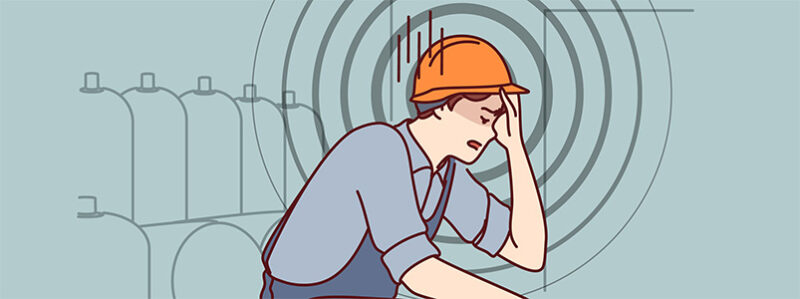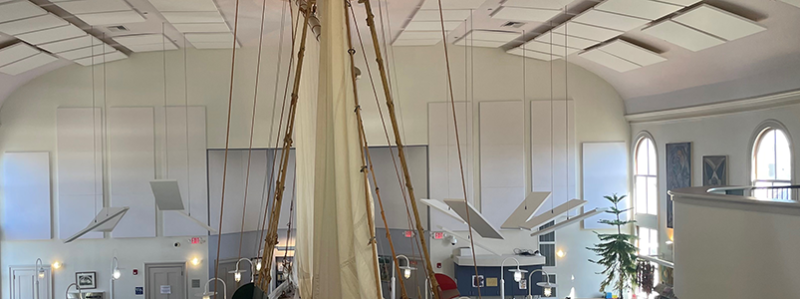
The Impact of Occupational Noise Exposure on Worker Health
Occupational noise exposure is an often overlooked hazard in workplaces, with serious implications for the health and well-being of workers. Prolonged exposure to high levels of noise can lead to various physical and psychological health issues. In this post, we will explore the detrimental impact of occupational noise exposure and highlight the crucial need for effective control measures to ensure the safety of workers.
Understanding Occupational Noise Exposure
Occupational noise refers to excessive sound levels encountered in the workplace, commonly surpassing 85 decibels (dB). Industries such as manufacturing, construction, mining, and aviation are particularly susceptible to high noise levels. Noise sources can include machinery, equipment, tools, and vehicles.
Physical Health Effects:
- Hearing Loss: Prolonged exposure to loud noise can result in noise-induced hearing loss (NIHL). Delicate structures in the inner ear can sustain damage, leading to permanent hearing impairment or total loss. It is important to note that NIHL is irreversible and significantly impacts an individual’s quality of life.
- Tinnitus: Excessive noise exposure can cause tinnitus, a condition characterized by persistent ringing, buzzing, or hissing sounds in the ears. Tinnitus can be distressing, affecting concentration, sleep patterns, and overall well-being.
- Cardiovascular Issues: Studies indicate a correlation between occupational noise exposure and an increased risk of cardiovascular problems, including hypertension and ischemic heart disease. Prolonged exposure to noise can trigger stress responses in the body, elevating blood pressure and heart rate.
Psychological and Mental Health Effects
- Stress and Anxiety: Chronic exposure to loud noise in the workplace can induce stress and anxiety. Workers constantly exposed to noise may experience elevated cortisol levels, sleep disturbances, irritability, and difficulties concentrating. These factors can contribute to reduced productivity and overall job dissatisfaction.
- Cognitive Impairment: Research suggests that occupational noise exposure can impair cognitive functions, such as memory, attention, and problem-solving abilities. Workers may struggle with complex tasks and experience reduced job performance.
Occupational Safety and Health Administration (OSHA) Regulations
Recognizing the importance of protecting workers from noise hazards, OSHA has established regulations to limit occupational noise exposure. The permissible exposure limit (PEL) is set at 85dB for an 8-hour work shift. Employers must implement engineering controls, administrative measures, and provide personal protective equipment (PPE) to reduce noise levels and safeguard workers.
Prevention and Control Measures
- Engineering Controls: Employers should prioritize noise reduction at the source by implementing engineering controls. This may involve modifying machinery, introducing noise barriers, and utilizing sound-absorbing materials.
- Administrative Controls: Strategies such as job rotation, scheduling rest periods in quieter areas, and limiting exposure time can effectively mitigate the risks associated with noise exposure.
- Personal Protective Equipment (PPE): When other control measures are insufficient, employers must provide appropriate hearing protection devices, such as earplugs or earmuffs, and ensure their proper use and maintenance.
The impact of occupational noise exposure poses significant risks to worker health, both physically and psychologically. Employers have a legal and moral responsibility to assess and control noise levels in the workplace, thereby safeguarding the well-being of their employees. By implementing effective control measures, organizations can create a safer and healthier work environment, reducing the incidence of hearing loss, tinnitus, and other noise-related health issues. Prioritizing worker health and adhering to OSHA regulations will not only improve the overall quality of life for employees but also enhance productivity and job satisfaction in the long run.
-
April 11, 2024
Acoustic Improvements at Provincetown Public Library
-
November 16, 2023
How to Soundproof a Room
-
September 26, 2023
Quieting the Racket: Understanding Pickleball Noise and Effective Solutions




